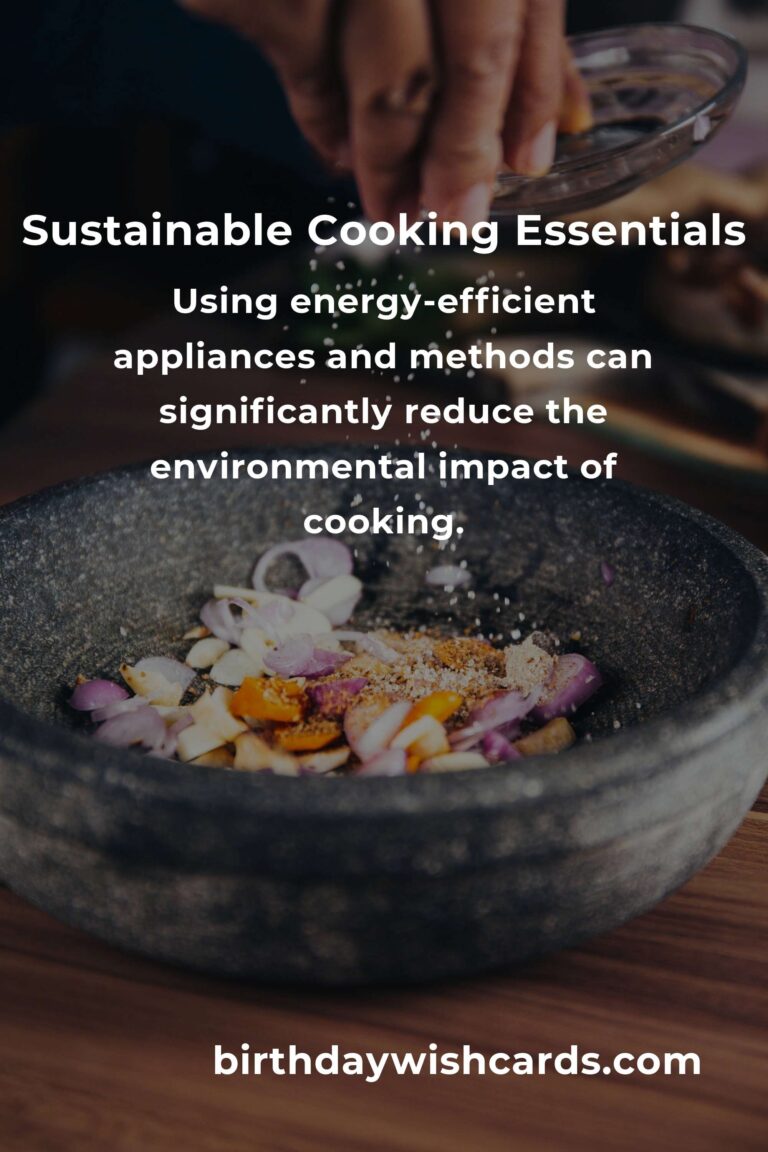
In recent years, sustainable cooking has become a hot topic among environmentally conscious individuals. It is a method of preparing meals that considers the impact on the environment and the future of our planet. This guide is designed for beginners who want to start cooking in a more eco-friendly way.
What is Sustainable Cooking?
Sustainable cooking involves using ingredients and methods that minimize harm to the environment. This can include choosing local and seasonal produce, reducing food waste, and using energy-efficient appliances. The goal is to create delicious meals while reducing the carbon footprint and supporting local ecosystems.
Why is Sustainable Cooking Important?
Food production has a significant impact on the environment. From deforestation to water consumption, the process of bringing food to our tables can be resource-intensive. By adopting sustainable cooking practices, we can help preserve natural resources and protect biodiversity. Moreover, it supports local farmers and reduces dependency on mass-produced food items.
Key Principles of Sustainable Cooking
Sustainable cooking is guided by a few key principles. These include selecting organic and locally sourced ingredients, minimizing food waste, utilizing energy-efficient cooking methods, and choosing plant-based items. By following these principles, you can contribute to a healthier planet.
Choosing the Right Ingredients
Start by choosing ingredients that are grown locally and in season. This reduces the need for transportation and helps support local farmers. Organic produce is also a great choice as it is grown without harmful pesticides and chemicals, which can damage ecosystems.
Reducing Food Waste
One of the simplest ways to practice sustainable cooking is by reducing food waste. Plan your meals ahead, store leftovers properly, and use every part of the ingredient when possible. Composting is another effective way to ensure that food scraps are returned to the earth rather than ending up in landfills.
Energy-Efficient Cooking
Using energy-efficient appliances and methods can significantly reduce the environmental impact of cooking. Consider using pressure cookers or slow cookers, which are designed to use less electricity. Also, try to cook multiple items at once to make the most of the energy used.
Incorporating Plant-Based Meals
Plant-based meals have a lower environmental impact compared to meat-based dishes. Incorporate more vegetables, grains, and legumes into your diet. Not only are these foods nutritious, but they also require fewer resources to produce.
Conclusion
Sustainable cooking is an essential practice for those looking to reduce their environmental footprint and contribute to a healthier planet. By following these basic principles, beginners can start making a positive impact today. Remember, every small step counts towards a more sustainable future.
Sustainable cooking involves using ingredients and methods that minimize harm to the environment. Food production has a significant impact on the environment. By adopting sustainable cooking practices, we can help preserve natural resources and protect biodiversity. Start by choosing ingredients that are grown locally and in season. One of the simplest ways to practice sustainable cooking is by reducing food waste. Using energy-efficient appliances and methods can significantly reduce the environmental impact of cooking. Plant-based meals have a lower environmental impact compared to meat-based dishes.
#SustainableCooking #EcoFriendly #CookingTips #GoGreen #BeginnerCooking

